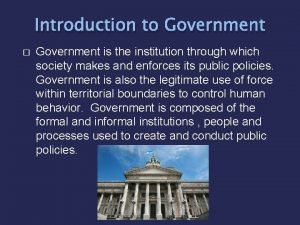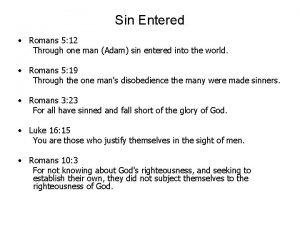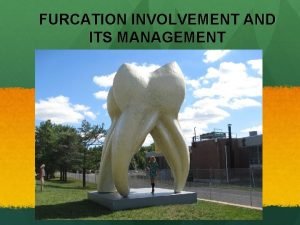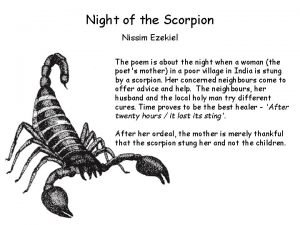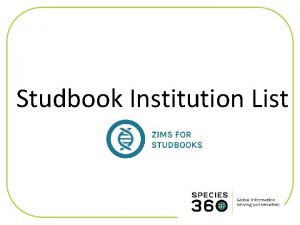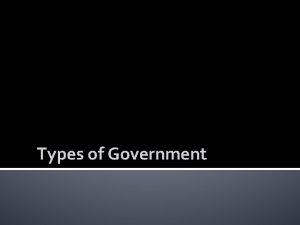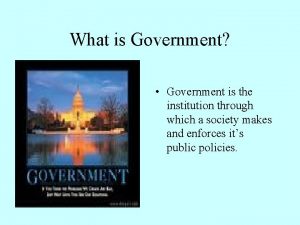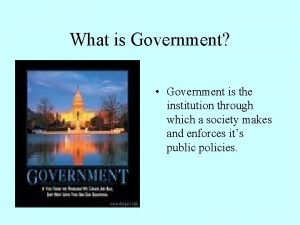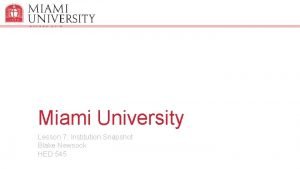What Is Government Government is the institution through










- Slides: 10

What Is Government? Government is the institution through which a society makes and enforces its public policies

I. Theories on the Origin of Government A. The Force Theory- states that one person or a small group took control of an area and forced all within it to submit to that person’s or group’s rule. B. The Evolutionary Theory- argues that the state evolved naturally out of the early family. C. The Divine Right Theory- holds that God created the state and that God gives those of royal birth a “divine right” to rule.

D. The Social Contract Theory- argues that the state arose out of a voluntary act of free people. Thomas Hobbes John Locke

Hobbes’ Views 1. Natural State of Man: ”WAR OF ALL AGAINST ALL” 2. Purpose of govt. : Control chaos & selfish behavior 3. Type of gov’t. : Absolute Monarchy 4. Individual Rights: Given up to government Locke’s Views 1. Natural State of Man: ” FREE, EQUAL, INDEPENDENT & HARMONIOUS ” 2. Purpose of govt. : Protect Natural Rights 3. Type of gov’t. : Democracy 4. Individual Rights: Life, Liberty & Property

II. Classifying Governments can be classified by three different standards: Who can participate in the governing process. The geographic distribution of the governmental power within the state. The relationship between the legislative (lawmaking) and the executive (lawexecuting) branches of the government.

A. Classification according to who can participate (2 broad types) Democracy Dictatorship 1. Supreme political authority rests with the people. 2. A direct democracy laws are directly voted on by the people themselves. 3. In an indirect democracy, a small group of persons, chosen by the people to act as their representatives, expresses the popular will. 1. Exists where those who rule cannot be held responsible to the will of the people. 2. An autocracy is a govt. in which a single person holds unlimited political power. 3. An oligarchy is a govt. in which the power to rule is held by a small, usually self-appointed elite.

B. Classification by Geographic Distribution of Power 1. Unitary government -all powers held by a single, central agency. 2. Federal government -powers of govt. are divided between a central govt. & several local (or state in U. S) governments. a. Superior powers for both the central and local governments makes this division of power on a geographic basis.

C. Classification by the Relationship Between Legislative and Executive Branches

III. American Democracy Based upon the following: A. Recognition of the fundamental worth and dignity of every person B. Respect for the equality of all persons 1. Equal Opportunity 2. Equality under the law C. Faith in majority rule and an insistence upon minority rights “Democracy is the recurrent suspicion that more than half of the people are right more than half the time”…E. B. WHITE

D. Acceptance of the necessity of compromise E. Insistence upon the widest possible degree of individual freedom. “The right to swing my fist ends where the other man’s nose begins”…O. W. Holmes
 Formal institution and informal institution
Formal institution and informal institution The institution through which society makes and enforces
The institution through which society makes and enforces Through one man sin entered the world, and through one man
Through one man sin entered the world, and through one man Furcation dental definition
Furcation dental definition Methods of timber conversion
Methods of timber conversion Who wrote the poem night of the scorpion
Who wrote the poem night of the scorpion Các châu lục và đại dương trên thế giới
Các châu lục và đại dương trên thế giới Sơ đồ cơ thể người
Sơ đồ cơ thể người ưu thế lai là gì
ưu thế lai là gì Các môn thể thao bắt đầu bằng tiếng bóng
Các môn thể thao bắt đầu bằng tiếng bóng Tư thế ngồi viết
Tư thế ngồi viết

